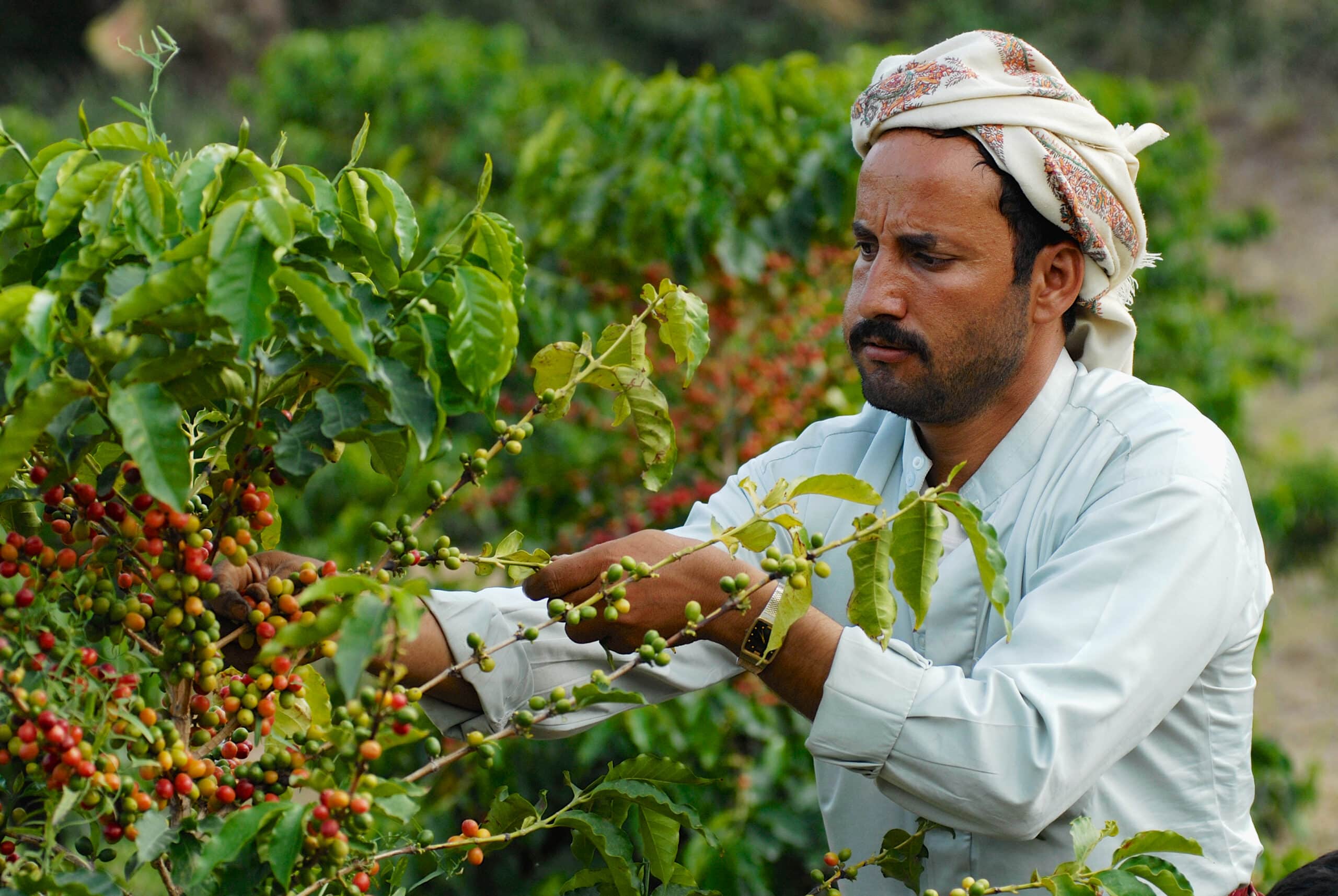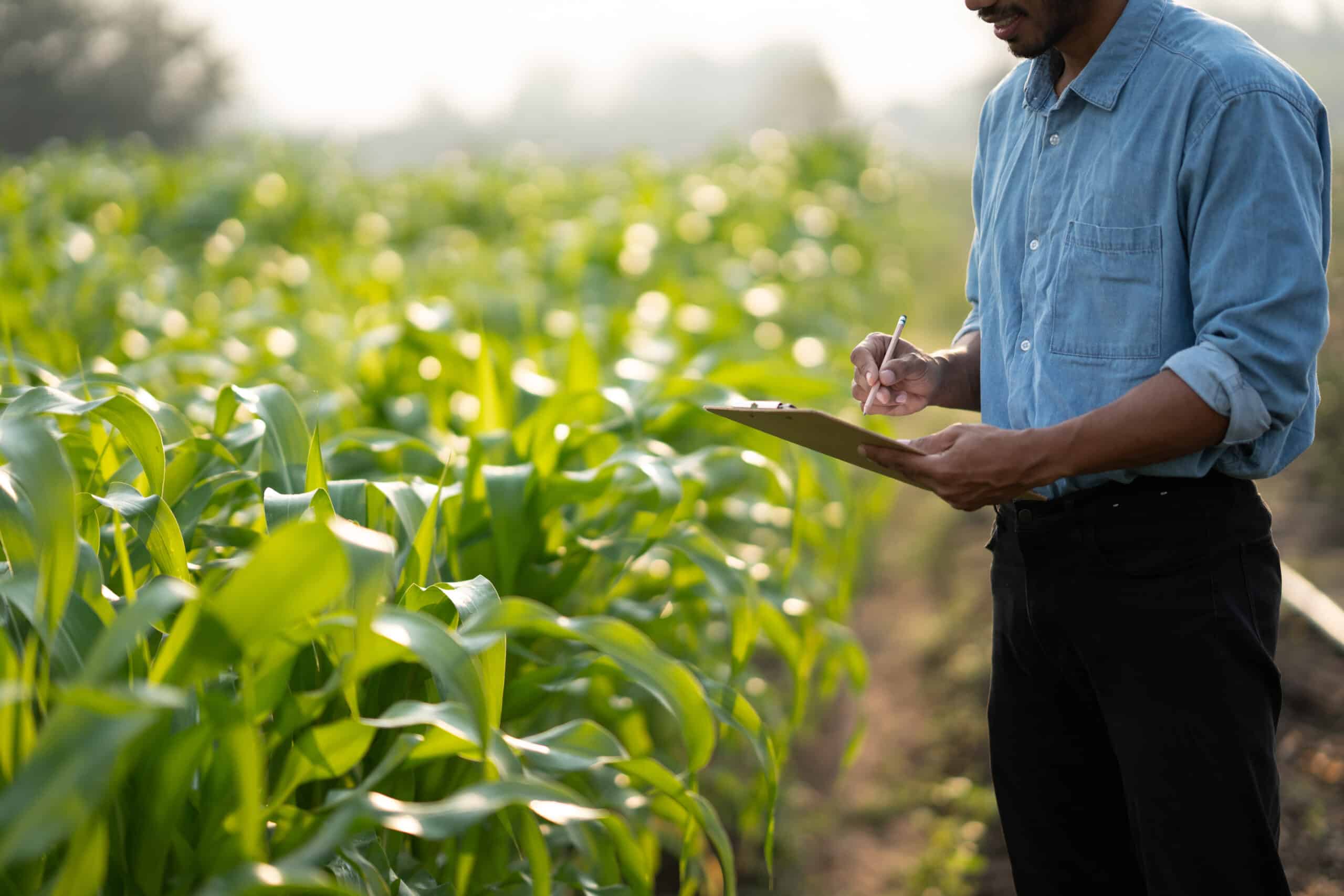For centuries, Yemen dominated international coffee trade through the legendary port of Mocha, but this agricultural heritage gradually declined as farmers shifted toward faster-growing, more immediately profitable crops like qat, leaving much of the traditional coffee cultivation knowledge dormant. Today, however, Yemen’s coffee industry is experiencing a remarkable renaissance driven by the recent discovery of Yemenia coffee as a genetically distinct Arabica lineage.
Discovered in 2020 by genetic researchers, this discovery constitutes a significant addition to the coffee family tree, as it establishes Yemenia as a unique “mother population” of Arabica. Centuries of environmental adaptation to Yemen’s specific growing conditions are indicative of Yemenia’s substantial genetic divergence from its Ethiopian ancestors. This previously unrecognised cultivar offers valuable opportunities for the speciality coffee industry and has significant potential breeding applications.
Sustainability considerations
As climate change threatens coffee production globally, Yemenia’s ability to adapt to atypical growing conditions provides a potential opportunity for the coffee industry to improve its resilience without compromising on quality.
Arabica, which is considered the highest quality coffee, accounts for more than half of all coffee produced worldwide, yet it is particularly vulnerable to rising temperatures. Optimal growing conditions are limited to narrow temperature bands (approximately 18–22 °C), and if current trends continue, suitable growing areas for Arabica could shrink by up to 50% by 2050. This naturally presents a significant risk to global coffee supply chains and has heralded significant interest in hardier alternative varieties.
Research suggests that Yemenia varieties likely contain drought-tolerant and disease-resistant traits that could prove highly valuable for future breeding programmes. Through centuries of domestication and natural selection, Yemeni coffees have developed distinct survival characteristics. Yemeni farmers have contributed to this by saving seeds from their hardiest, best-performing trees, effectively favouring drought-tolerant, resilient stocks. Over generations, this practice has helped reinforce Yemenia coffee’s inherent robustness.
In practice this has meant that Yemenia varieties are particularly well suited to tolerating the kind of drought and extreme heat conditions that are becoming increasingly common with the onslaught of climate change. Unlike many traditional Arabica varieties, which require consistent rainfall and mild temperatures, Yemenia coffee plants flourish in high temperatures and with minimal annual rainfall.
They routinely handle temperatures that exceed optimal Arabica growing conditions (24-30 °C), while their deep root systems, thick foliage, and efficient water usage allow them to maintain productivity even during prolonged dry periods. This remarkable level of adaptability has enabled Yemenia coffee plants to thrive in regions that only receive 200-350 mm of rainfall annually, which is ~20-35% of what is considered normal for coffee cultivation.
Domestic opportunities
The emergence of Yemenia coffee presents new economic opportunities for the nation’s many smallholder coffee farmers. The combined efforts of farmers, cooperatives, exporters, development agencies, and specialty buyers are gradually revitalising Yemen’s coffee sector even amid ongoing conflicts and their impact on infrastructure and market access.
Coffee cultivation in Yemen has always been an artisanal, family-driven practice. Growers tend small, terraced plots on rugged mountain slopes, using farming methods passed down through generations. This traditional approach yields low volumes but exceptional quality beans, imbued with the distinct terroir of Yemen’s highlands.
In recent years, the unique characteristics and qualities of Yemenia coffee have drawn heightened interest from specialty coffee buyers. This has seen Yemenia lots selling for $100-$300/lb at auction, far above the C-price of $1.60-$2.20/lb for commodity-grade Arabica.
Traders’ willingness to pay premium prices for Yemenia coffee has also translated into higher incomes for farmers. This increased profitability is slowly creating a viable way for Yemeni farmers to earn a more sustainable living while supporting rural development and economic stability within wider Yemeni farming communities.
However, significant challenges related to market access remain. Yemen’s coffee growers typically live in remote mountainous regions, without access to decent transportation infrastructure, making access to international markets and market information difficult. Historically, most Yemeni farmers have had to sell to local intermediaries or cooperatives, who would aggregate coffee from many farms before exporting. This traditional supply chain, while necessary, left farmers with limited bargaining power or market insight. Moreover, Yemen’s longstanding isolation from direct trade channels meant that even premium coffees were often blended or sold without due recognition of their origin or quality.
In recent years, however, new buyer partnerships and export programmes have begun to bridge this gap. International initiatives (such as USAID’s Economic Recovery and Livelihoods Program, Vison Hope International’s “Coffee Cultivation and Reforestation Project”, or Human Appeal’s “Coffee Tree Program”) have provided training, helped Yemeni farmers improve quality control, and connected growers directly with global buyers. In doing so, these programmes have helped countless farmers improve cultivation techniques, drive higher yields and strengthen market linkages.
Where more direct trade relationships have been established, farmers have also received a significantly larger share of their coffee’s final retail value. The impact has been dramatic, with some Yemeni coffee farmers earning between 30% and 60% of the final selling price, when they would have only received up to 10% in previous years.
Similarly, companies like Pearl of Tehama have developed systems for paying quality-based price premiums directly to producers, something previously uncommon to Yemen’s coffee industry. These organisations help farmers understand quality standards and market expectations, creating incentives for continuous improvements in cultivation and processing practices.
Building on this success, Yemen’s Coffee Ministry launched the country’s first National Coffee Auction in 2022, creating an inclusive platform for qualified Yemeni farmers to market fully traceable coffees internationally. The inaugural event attracted buyers from across Asia, the Middle East, Europe and the US, with all 28 lots achieving at least $25/lb and premium lots fetching $60.50/lb.
It is also worth noting that Yemenia coffee is under threat from food fraud, as its ability to command premium prices has enticed less scrupulous traders to try and pass off lower-quality beans as Yemenia. While frustrating for buyers, the problem is not insurmountable, and traceability is already becoming more important to its value chain. In fact, diligent exporters have already begun separating lots by origin, documenting the coffee’s journey, and utilising advanced testing and verification methods, including genetic fingerprinting and sensory profiling, to certify authenticity. Some exporters have even started leveraging blockchain technology to try and create tamper-proof digital records that can track coffee from farm to cup.
Future outlook
Looking forward, Yemenia coffee is likely to gain even greater significance as global warming increasingly impacts traditional coffee supply chains. International breeding programmes are already exploring how Yemenia’s genetic traits can be integrated into more robust Arabica varieties that maintain premium quality under harsh environmental conditions.
At a domestic level, ongoing market development initiatives and greater international awareness of Yemenia coffee are expected to enhance the economic viability and sustainability of coffee farming in the region. Consumer interest remains high and is expected to grow, especially within the speciality market. Yemen’s combination of exceptional cup quality, ancient coffee heritage, and natural resilience gives it a unique position in the global specialty coffee market. However, continued investments in infrastructure, farmer training, and direct market access programmes will be crucial in harnessing Yemenia coffee’s full economic potential.
At Farrelly Mitchell, we specialise in developing and improving agricultural value chains. Our expertise spans capacity building, programme development, community empowerment, supply chain optimisation, traceability and transparency and much more. Our coffee consultants offer tailored solutions to help navigate market complexities, enhance product quality, and optimise profitability. Through market research, strategy development, and implementation support, we help clients navigate complex agricultural markets and create value-driven supply chains. Contact our team today to explore how we can support your operation today.














